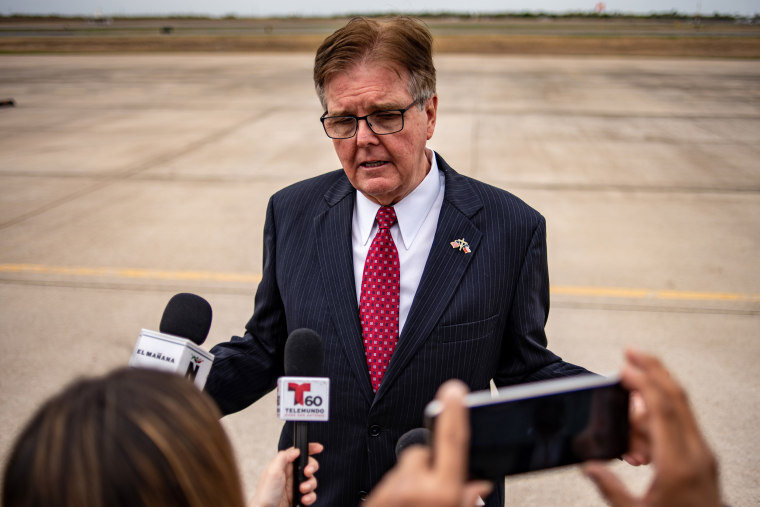It was about a month ago when Texas Lt. Gov. Dan Patrick (R) sparked national headlines by suggesting that many American seniors would risk their wellbeing for the sake of economic growth.
"Those of us who are 70 plus, we'll take care of ourselves. But don't sacrifice the country," the Texan argued in March. Patrick, who recently turned 70, added, "No one reached out to me and said, 'As a senior citizen, are you willing to take a chance on your survival in exchange for keeping the America that America loves for its children and grandchildren?' And if that is the exchange, I'm all in."
Patrick has had several weeks to reflect on his argument, and this week the Texas Republican doubled down, convinced that he was right.
"[W]hat I said when I was with you that night, there are more important things than living. And that's saving this country for my children and my grandchildren and saving this country for all of us," Patrick said Monday night. He went on to say that he didn't want to die but that "we've got to take some risks and get back in the game and get this country back up and running."
He added that he felt "vindicated," though I'm not altogether sure why.
As for warnings from public-health officials, including official Dr. Anthony Fauci, about the dangers posed by re-opening society too quickly, Patrick added in his interview with Fox News' Tucker Carlson, "They told us, Tucker, to follow the science," the lieutenant governor said. "Well, what science?"
I'm not sure if that was a rhetorical question, because if it's not, there are plenty of public-health officials -- in Texas and elsewhere -- who could try to help the lieutenant governor understand the scientific reasons mitigation efforts make an enormous difference.
Circling back to our earlier coverage, what Patrick continues to describe is some kind of tradeoff: during a pandemic, Americans will either prioritize the economy or people's lives. I continue to believe that's a false choice: a coordinated and effective mitigation initiative can save lives, while economic rescue efforts -- from Congress and the Federal Reserve -- can ease the downturn.
But even putting that aside, there's a more fundamental flaw: if we give up trying to slow infection rates, the economy will suffer anyway as more and more of the American workforce falls ill, and hospitals face an impossible onslaught.
Patrick seems to envision a dynamic in which the economy returns to normal as some Americans succumb to a deadly virus, effectively taking one for the team. But among the reasons that's ridiculous is there can be no economic normalcy while a pandemic sweeps through the populace.
